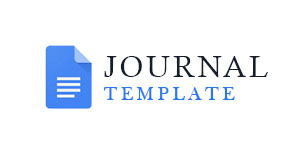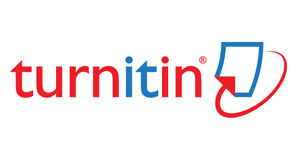STRENGTHENING ISLAMIC BANKING SERVICES IN INDONESIA THROUGH BLOCKCHAIN TECHNOLOGY: THE ANP- STEP APPROACH
Abstract
Keywords
Full Text:
PDFReferences
Anikina, ID, Gukova, AV, Golodova, AA, & Chekalkina, AA (2016). Methodological aspects of prioritization of financial tools for stimulation of innovative activities. European Research Studies Journal, 19 (2 Special Issue), 100–112. https://doi.org/10.35808/ersj/525
Baidhowi, B. (2018). Sharia Banking Opportunities and Challenges in the Digital Era. 192 (Icils), 157–161. https://doi.org/10.2991/icils-18.2018.30
Dar, PH, & Azmi, DS (2017). Islamic Finance in the Digital Age: FinTech Revolution. Global Islamic Finance Report, 282–290.
Firmansyah, EA, Anwar, M., & Padjadjaran, U. (2019). ISLAMIC FINANCIAL TECHNOLOGY (FINTECH): ITS CHALLENGES AND Profile of the Islamic Fintech Firms The six Islamic Fintech firms participating in this research are the firms headquartered in Indonesia. 216 (Assdg 2018), 52–58.
Fund, IM (2020). Selected issues (Issue 20, pp. 0–20). Washington DC.
Irma Muzdalifa, Inayah Aulia Rahma, BGN (2018). (Islamic Finance Approach). Masharif Al-Sharia Journal: Journal of Islamic Economics and Banking, 3 (1).
Kumala, MY & D. (2020). Blockchain Technology for Transparency and Security in the Digital Age. 6. http://repository.unmuha.ac.id/xmlui/handle/123456789/579
Partner, S., Partner, E., & Partners, MS (2018). Report 2018 EXCLUSIVE PARTNER.
Rabbani, MR, Khan, S., & Thalassinos, EI (2020). FinTech, Blockchain and Islamic Finance: An Extensive Literature Review. VIII (2), 65–86.
Rusydiana, A. (2019). How to Develop Sharia Fintech Industry in Indonesia? Interpretive Structural Model (ISM) approach. Al-Muzara'ah, 6 (2), 117–128. https://doi.org/10.29244/jam.6.2.117-128
Saksonova, S., & Kuzmina-Merlino, I. (2017). Fintech as financial innovation - The possibilities and problems of implementation. European Research Studies Journal, 20 (3), 961–973. https://doi.org/10.35808/ersj/757
Susanne Chishti & Janos Barberis. (2016). The FINTECH Book. In The Fintech Book.
Thomas L.aaty & Luis G. Vargas. (2010). International Series in Operations Research & Management Science Introduction. In FS Hillier (Ed.), Customer Satisfaction Evaluation: Methods for Measuring and Implementing Service Quality (Second Edi, Vol. 139). Springer. file: /// C: /Users/HP/Downloads/qdoc.tips_saaty-vargas-models-methods-concepts-applications-.pdf
Umar A. Oseni and S. Nazim Ali. (2019). FINTECH IN ISLAMIC FINANCE theory and Practice (Umar A. Oseni and S. Nazim Ali (ed.); First publ). Routledge London and New York.
Wibowo, B. (2016). Analysis of fintech regulations in building the economy in Indonesia. Journal of Master of Electrical Engineering at Mercu Buana University, 1–9.
Wulandari, PA (2017). Swot Analysis of the Development of Financial Technology in Indonesia. Proceedings of the ASBIS National Seminar, 376–383.
DOI: https://doi.org/10.24952/tijaroh.v7i2.4368
Refbacks
- There are currently no refbacks.
Copyright (c) 2021 At-tijaroh: Jurnal Ilmu Manajemen dan Bisnis Islam

This work is licensed under a Creative Commons Attribution-ShareAlike 4.0 International License.














